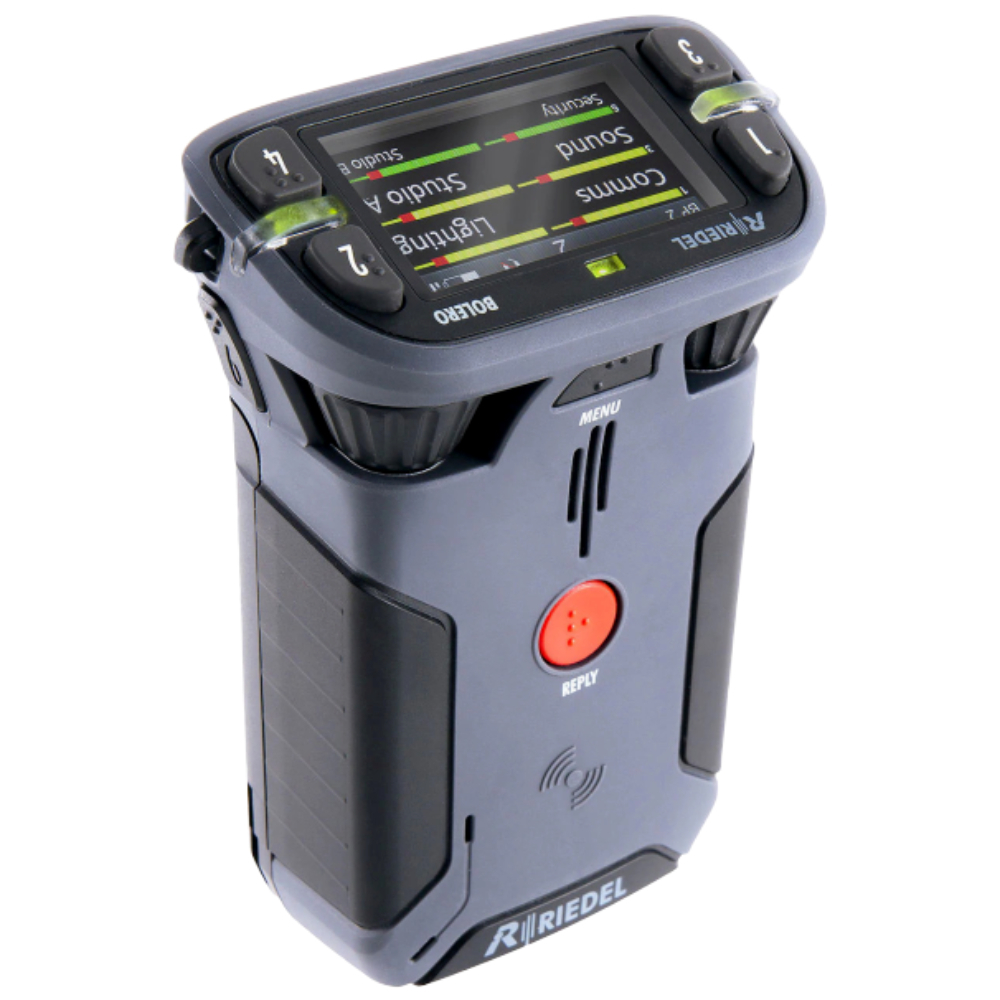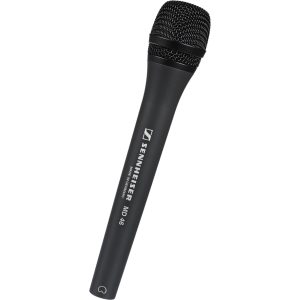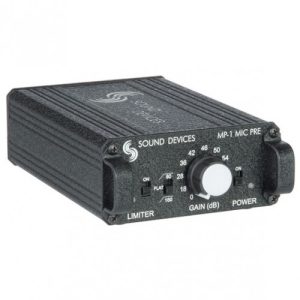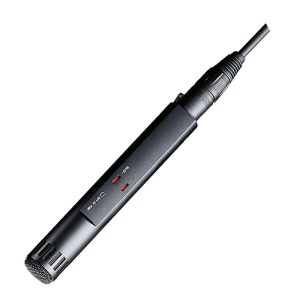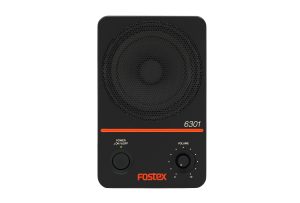Description
The Bolero high-clarity voice codec provides both higher speech intelligibility and more efficient use of RF spectrum supporting twice the number of beltpacks per antenna for the same radio bandwidth as other DECT-based systems. The Riedel-exclusive ADR technology combines a unique receiver design with multiple diversity elements specifically designed to reduce sensitivity to multipath reflections, making Bolero useable in challenging RF environments where other systems have great difficulty.
The beltpack itself features six intercom channels and a separate “Reply” button for a quick reply to the last caller. Bolero’s sunlight readable and dimmable display can be rotated so that it is readable in any orientation. Also, in an industry first, the beltpack can be used without a headset like a walkie-talkie radio utilizing an integrated mic and speaker. Bolero beltpacks support Bluetooth, allowing either a Bluetooth headset or a Smartphone to be connected. When a Smartphone is connected, the beltpack can act like a car’s “hands free” setup so the user can receive calls on their phone and talk and listen via their beltpack headset. Users can also inject phone calls directly into the intercom channels, providing new levels of workflow flexibility.
Bolero 6-key Beltpack
- Next generation, digital, license free 1.9GHz DECT band
- Up to six full-duplex keys plus convenient REPLY button to last caller
- Riedel-exclusive ADR receiver technology overcomes multipath issues
- Modern high-clarity voice codec increases beltpack to antenna density
- Integrated Bluetooth technology for wireless headsets or phone connection
- IP-65 environmental sealing
- Tough, ergonomic beltpack built to survive
- NFC means no registration headaches!
- Touch the beltpack to the antenna and GO!
- Can be used as a beltpack, a portable desktop keypanel, or a walkie-talkie
- Integrated mic and speaker for headset-free operation
Bolero Active Antenna
- Up to 250 beltpacks and 100 antennas per Bolero Net
- Intelligent use of bandwidth results in 10 beltpacks per antenna
- Decentralized SMPTE 2110-30 (AES67) IP-networked antennas
- Fully re-programmable FPGA to handle future networks


